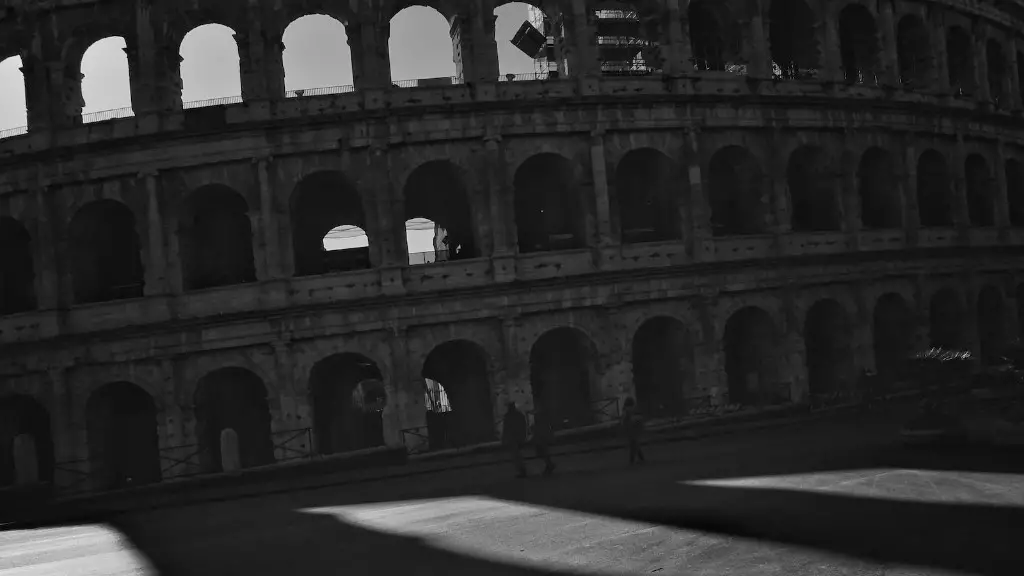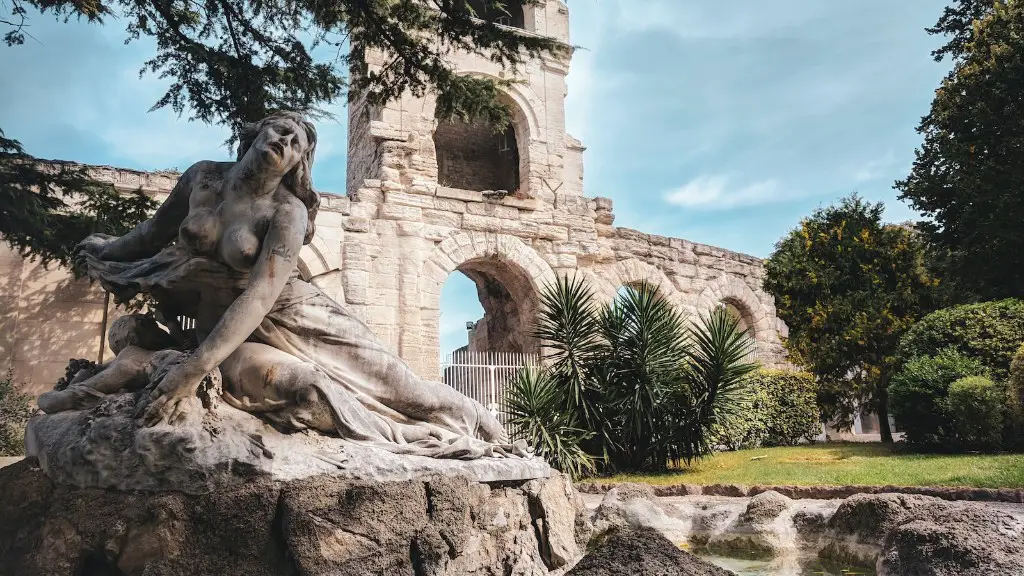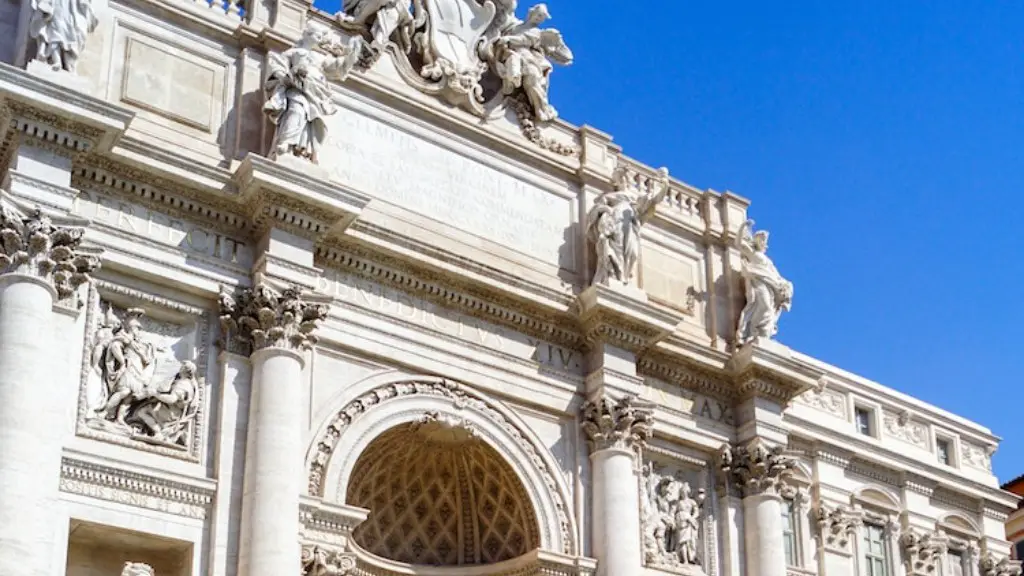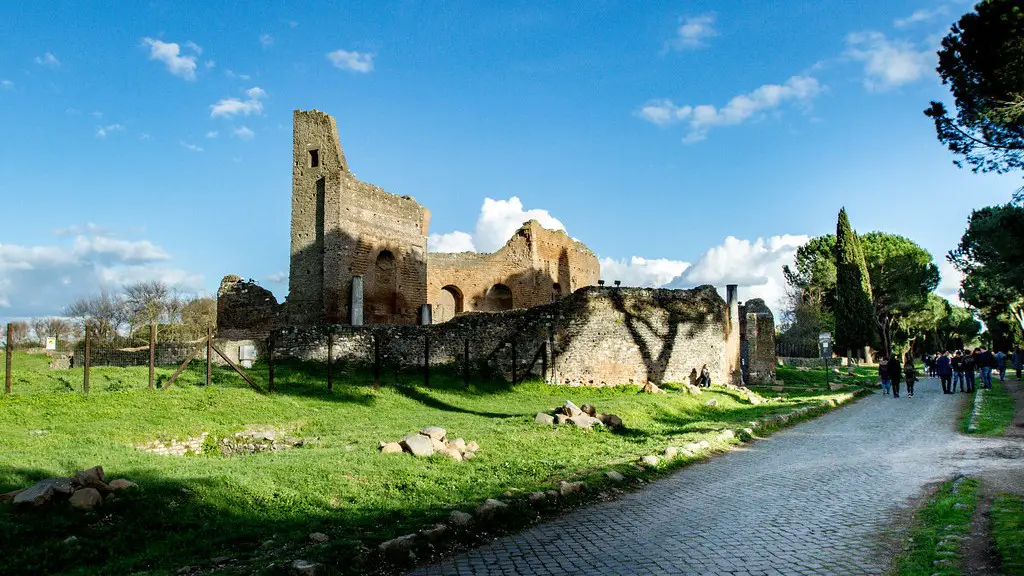In ancient Rome, the practice of apotheosis was a common occurrence. Apotheosis refers to the process by which a mortal is transformed into a god. This transformation was typically accomplished by elevating the mortal to the status of a deity after their death. The ancient Romans believed that this transformation allowed the individual to become immortal and enjoy the benefits of a godly existence. Apotheosis was often carried out by the Roman Emperor, who would declare a deceased individual to be a god. This declaration would then be legitimized by the Senate. The process of apotheosis was a way for the ancient Romans to show respect and honor to those who they believed had made significant contributions to their society.
The ancient Romans believed that their gods were immortal and had the power to control the natural world. They believed that the gods could help them in their everyday lives and that they could influence the outcome of events. The ancient Romans worshipped their gods by making offerings of food and drink, and by giving gifts. They also built temples and shrines to their gods and held festivals and ceremonies in their honor.
How did Roman gods start?
The Roman gods were a blend of deities, with close similarities to the gods worshipped by the ancient Greeks. Over the centuries, the movement of large numbers of people meant that gods from a variety of cultures, including Etruscan and Greek, merged together. As a result, Roman gods were a blend of deities, with close similarities to the gods worshipped by the ancient Greeks.
A deceased emperor held worthy of the honor could be voted a state divinity (divus, plural divi) by the Senate and elevated as such in an act of apotheosis. This was a way of showing the highest respect to the emperor and honoring his memory.
When did the Romans start believing in gods
The Roman pantheon of gods began to take on their now-familiar forms during the Etruscan dynastic period in the 6th century BC. The Etruscan kings were greatly influenced by the Greeks, who had a rich tradition of mythology and storytelling. As a result, the Roman pantheon came to resemble the Greek one, with gods and goddesses presiding over various areas of human life. However, the Romans also added their own unique twist to the pantheon, creating deities that reflected their own values and beliefs.
The Roman religion was polytheistic, meaning that people worshipped many gods. The main gods were Jupiter, Juno, and Minerva. The state also worshipped other gods, such as Mars, Mercury, and Venus. Every Roman household had its own household gods, called lares and penates. These gods protected the family and the home. Families also worshipped other spirits, such as the genius of the head of the household and the manes of their ancestors. These spirits were worshipped regularly with offerings of food, wine, and flowers.
Who started the Roman gods?
Roman religion was a blend of several different religious influences. The Roman gods and goddesses were a mix of several different religions, including the Greek colonies of southern Italy, the old religions of the Etruscans, and the Latin tribes. Roman religion was a mixture of several different religious influences.
The Romans were very strict about religious observance and persecuted those who refused to honor the traditional gods. This changed in 312 AD when the Roman emperor Constantine became a convert to Christianity.
Which Roman emperor declared himself god?
His rule was characterized by widespread SSDd and paranoia, as well as by numerous scandals, murders, and bizarre behaviors. Many Roman senators and other members of the elite disliked and feared him, while ordinary citizens continued to support him until his death.
The imperial cult was one more element in the Religion of Rome. It held that the emperor and his family were gods. So, when Julius Caesar died, the state recognized him as a god, the Divine Julius.
Did Roman gods copy Greek gods
Greek Gods are better known because Greek mythology is more popular. Roman Gods are often borrowed from Greek mythology, but they have different names and different traits. For example, Cupid is the Roman god of love and Eros is the Greek god of love.
There was no official proscription of paganism, however, until AD 392, when, in a long decree, Theodosius forbade, not only the offering of blood sacrifice, but all forms of pagan worship, including private religious rites. This was a death blow to paganism, which never recovered.
Is Zeus Greek or Roman?
Zeus was the chief deity of the ancient Greek pantheon and was considered the god of the sky and weather. Zeus was also identified with the Roman god Jupiter. His name likely comes from the sky god Dyaus of the ancient Hindu Rigveda.
Most ancient cultures had different names and even different stories about the same gods. So as the Romans conquered the Greeks they adopted Greek Mythology and replaced the gods’ names with traditional Roman gods’ names.
Why did the Romans sacrifice to their gods
The ancient Romans believed that sacrifices were a way to show gratitude to the gods, or to ask for their favors. They would often sacrifice animals or food as part of their worship rituals.
Some scholars believe that Janus is the god of all beginnings and that his association with doorways is derivative. They argue that he was invoked as the first of any gods in regular liturgies, and that the beginning of the day, month, and year were all sacred to him. Janus was an important god in the Roman pantheon, and his name is still evoked today in the month of January.
What religion was Jesus?
Jesus was a Jew and he was born to a Jewish mother in Galilee. All of his friends, associates, colleagues, disciples were also Jews. He regularly worshipped in Jewish communal worship, synagogues.
The first gods to appear in Greek mythology are Chaos and Gaia. Chaos represents the void and is the father of Nyx (Night) and Erebus (Darkness). Gaia represents the Earth and is the mother of the Titans.
Conclusion
The ancient Romans believed that their gods had the power to intervene in human affairs. They believed that the gods could help them in their daily lives and play an active role in the world. The ancient Romans also believed that the gods resided in an underworld that was separate from the world of humans.
The ancient Romans became gods because they were able to harness the power of the natural world and use it to their advantage. They were able to create a system of government that was fair and just, and that helped to promote peace and prosperity. They were also able to build a strong military that was able to protect their borders and expand their empire.




